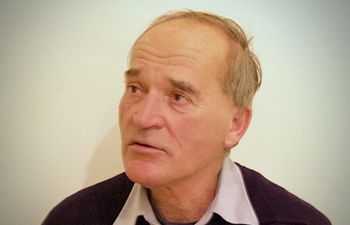Obituary: Rickie Dammann
Posted on behalf of: University of Sussex
Last updated: Friday, 12 January 2024

Rickie Dammann
Rickie Dammann, who taught for more than thirty years in the School of European Studies, has died. He was a brilliant and original philosopher, and an inspirational teacher.
Richard Marcel Jean Dammann was born in France in 1942. His father was one of the Dammann Frères who founded the famous French tea firm; his mother was English. French was his first language, and he grew up French, walking to school past the Eiffel Tower, until his father died in 1952. He then went to school in England, and moved to England with his mother and brothers in 1954.
After reading ‘Greats’ (Classics and Philosophy) at Oxford, where he was taught Philosophy by Peter Strawson, he went to London to do an MPhil in Philosophy at UCL under the supervision of Richard Wollheim. Rickie came to Sussex in 1968, where his great gifts as a teacher perfectly suited the small-group teaching which was the norm at the University for its first thirty years. His pupils remember his clarity, his perceptiveness, his warmth, his charm, his wit, and his supportiveness. He also served a term as Student Sub-Dean of the School of European Studies, where he was responsible for the pastoral care of the students of the School. He brought to this task the humanity and understanding which everyone who knew him would expect. There are many whose lives he transformed.
Rickie took philosophy to require and to be expressed in teaching, and much of his philosophy was teaching, but he made a huge difference to philosophy in the wider world as well, in particular to the philosophy of art. In his MPhil thesis he introduced the concept of ‘seeing-in’ to explain the relationship between the painted surface of a picture and the figures which, in the terms of the concept, we ‘see in’ it. His supervisor, Richard Wollheim, adopted this concept (with acknowledgement) and developed it. It has shaped philosophical thinking about pictures for half a century: everybody who has worked on the philosophy of pictorial representation in that period has worked within the framework of that concept.
His work on the philosophy of art complemented a love and deep understanding of actual art of a wide range of kinds: music (from Bach, near one end, to Fauré, towards the other); literature, particularly in French and English; and film (Godard, in particular). But he also developed, against the flow of the mainstream of philosophy in Britain, a profound knowledge of philosophy in the phenomenological tradition, particularly Heidegger, Merleau-Ponty, and later, Derrida. And through it all, shaping the way he read and wrote philosophy, was a fascination with language. He loved etymology. For example, one discovery was announced in an email headed ‘Mum’s the word’: ‘matter’ comes from the Latin ‘mater’, mother.
His philosophical talks were brilliant, self-effacing, and very funny. On one occasion he completely destroyed an extremely influential work in the philosophy of art. Urged afterwards to publish his critique, he said there was nothing there—all that he’d done was read out passages of the book he was discussing.
He lived life as he taught and wrote: with warmth, wit, and affection. Laughter surrounded him. He was a generous host, sharing good food and exuberant conversation with friends and visitors, alongside his wife, Margaret, who survives him.
The funeral will be at Holy Trinity church, Poynings, at 11.30 am on Thursday 18 January.
